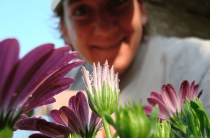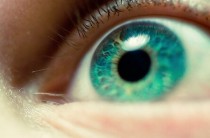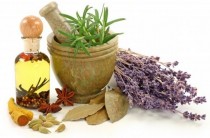Allergy is called the intermittent reaction of the body to substances, the effect of which on the body is considered harmful. The body, protecting itself from the effects of allergens, uses all possible methods.
The main symptomatology can be both general and local.
Local manifestations of allergies include:
- allergic rhinitis
- allergic conjunctivitis
- bronchial spasm;
- allergic otitis;
- allergic dermatitis, urticaria, eczema.
A common symptom is considered to be a complex of local. A clear manifestation of an allergy is a rash on the abdomen, on the hands of a mother who is breastfeeding. This reaction can also be caused by liver disease, improper menu selection, chemical allergens.
The main symptoms are considered to be:
- Rashes and blisters on various parts of the body;
- Severe itching, burning sensation of the affected areas of the skin;
- Increased nervousness, overexcitability, sleep disturbances due to regular itching and desire to scratch the skin.
There are two forms of urticaria:
- Acute, which is considered an operative response to contact with the allergen or its entry into the body. It lasts from a couple of hours to a couple of days.
- Chronic, occurring with a certain frequency, characterized by symptoms such as repeated rashes, itching, burning sensation. It is quite difficult to cure this disease, because by eliminating one allergen, the allergy may disappear, and then after a while it will manifest itself again on another substance.
Allergy after childbirth in the mother
Allergies after childbirth cause a lot of inconvenience to young mothers. Their worries are connected not only with their health, but also with the condition of the newborn. But in many cases, these fears are unfounded. The child is not transmitted allergic reactions due to breastfeeding.
Breastfeeding is considered one of the most important aspects of newborn development. From the mother's milk, the child receives the necessary trace elements that he needs for good development. But, after childbirth, the mother's body is weakened, and therefore the likelihood of an infectious or allergic disease increases.
Allergies during breastfeeding do not last long, but have a bad effect on the health of the baby. Therefore, it is necessary to know what dose of health for the child will be optimal, and will be able to protect him from diseases.
chronic allergies
When a woman suffers from chronic allergies, she needs to undergo a comprehensive examination. In some cases, urticaria is a sign of an autoimmune disease; it can accompany a woman throughout her pregnancy. Also, it is impossible not to take into account that herpes in pregnant women is very common.
It is important not to lose heart and not be content with just consulting a dermatologist. It is worth contacting a dermatologist, an allergist, a rheumatologist. Only the attending physician, after considering the results of the examination and on the basis of the examination, can draw up a sequence of intensive treatment. It is better not to resort to self-treatment, but to trust your health only to specialists.
Treatment of allergies in a nursing mother
The first step in the treatment of any type of allergy is getting out of the area of influence of allergens. If after this no positive changes followed, at the next stage it is necessary to contact a specialist who will diagnose intolerance and select the necessary treatment with harmless drugs - drops and tablets.
It is possible to cure allergies in nursing mothers, and the list of drugs that are forbidden to take is small. Obstetricians are advised to use inhalers and safe aerosols.
Most of the new generation of antihistamines do not cause bad health effects in the child. Treatment of allergies during breastfeeding in mothers can be carried out with the help of many drugs, except for those that include theophylline. Nursing mothers must strictly observe the dosage (it is reduced so that many harmful substances do not enter the milk).
When there is a period of exacerbation of allergies, a woman is recommended to take sorbents. These include white coal, dietary fiber, lumogel.
Medications
Antihistamine treatment is carried out using the following drugs:
- Suprastin;
- diazolin;
- pipolfenoma;
- Allerteka;
- Tavegila;
- Claritin;
- Cromohexal.
With the improvement of the patient's well-being, the dose of drugs is reduced, but the treatment continues. A prerequisite is the restriction of nutrition in the mother.
When allergy manifestations occur seasonally, certain rules must be followed that will significantly improve health:
- Being indoors with comfortable conditions (do not go outside when it is hot and windy);
- Change clothes when you come home;
- Comply with sanitary and hygienic standards (wet clean the room, change dirty linen).
Treatment of hives with drugs
It is necessary to choose medicines very seriously and responsibly. It is necessary to give preference to the means of those manufacturers who have conducted adequate studies in order to determine the degree of penetration of antihistamines into breast milk.
You can take this kind of drugs only when the mother's health is in serious danger, namely, when she:
- Quincke's edema appeared.
- The allergen has been identified.
- The cause of persistent relapses of chronic urticaria is not found.
The same reasons are sufficient to start taking antiallergic drugs that relieve itching: Fenistil-gel, Elokoma, Advant, Sinaflan and others. The required dosage of the drug is prescribed in each individual case by a doctor.
Specialists often use a treatment regimen in which a mother with chronic urticaria takes an antihistamine a couple of times a day until improvement occurs, and after that, the drug is taken once every five to seven days.
Homeopathic remedies for the treatment of allergies, such as Sulfur, are very popular. They are not used to cure any particular disease, but in order to speed up recovery and support the body as a whole. So, allergists often prescribe injections of gluconate and calcium chloride to women during breastfeeding.
Autolymphocytotherapy is used to completely cure allergies. Introduced into the woman's body in a special way "purified" their own lymphocytes, so that their own cells begin to heal from allergies. This method is widely used in situations where it is impossible to establish an allergen, but it is forbidden to carry it out during lactation. Patients who have recurrent chronic urticaria may have this procedure prior to pregnancy.
Causes of hives in a nursing mother
Urticaria is not considered a contagious disease, it is not transmitted from mother to child, or by other people of the mother. There are two reasons why you need to take urticaria seriously and not delay its treatment:
- The possibility of allergic edema (Quincke's edema) in the larynx. Due to the fact that the lumen in the airways narrows, the air cannot pass freely into the lungs, and the person begins to suffocate.
- Nervous breakdown of the mother. Since a woman experiences serious psychological and physical pressure during pregnancy and childbirth, this can affect her health. After the birth of a child, the first days of caring for him become a serious test for any mother, and therefore various worries about caring for a child may arise at this time.
Folk remedies for the treatment of allergies
During pregnancy and lactation, alternative methods of treatment are considered very popular. Guided by the principle “it will not get worse”, many women prescribe their own treatment. But it is worth knowing that many herbs are not so harmless, and should be used only after consulting a specialist.
To eliminate itching, improve skin condition, it is recommended to take baths with the addition of decoctions of chamomile, string, oak bark, calendula. Before following these recommendations, you need to apply a decoction to a small area of \u200b\u200bthe skin. After all, if the body usually perceives these herbs normally, then during lactation an allergy may occur. Also, it is very important to take baths with herbal decoctions for a certain time, because they dry out the skin a lot, which is why excessive treatment can only harm.
When the decoction is taken orally, the properties of the taken herb are first studied, which can have not only an anti-allergic effect. So, a decoction of string and calendula helps to lower blood pressure.
Diagnosis of allergic urticaria in a nursing mother
When signs of urticaria become noticeable, you should definitely consult a doctor to make the correct diagnosis. The allergist will conduct a survey of the young mother, and will issue directions for the following studies:
- A blood test for immunoglobulins, antibodies produced to substances that provoke allergies;
- Analysis of skin cells to detect allergenic substances;
- General analyzes of urine and feces;
- Rheumatic tests;
- Detection of chronic diseases (autoimmune, endocrine and others).
If there is a suspicion of food urticaria, it is recommended to keep a diary in which all foods eaten will be recorded, and the condition of the skin after a few hours after that. If necessary, conduct skin tests to detect one or more allergens. In the case when the allergen is a cosmetic product or household chemicals, it is necessary to record the time of application of these products.
The main principles of treatment of urticaria include:
- Elimination of the factor that provokes allergies;
- Taking anti-allergic drugs;
- Elimination of itching, burning sensation of the affected areas of the skin.
When urticaria is treated while breastfeeding, a large amount of antiallergic substances passes into the mother's milk. For this reason, treatment should be carried out with extreme caution.
Causes of allergies during lactation in the mother
The main causes that cause the manifestation of urticaria include:
- Highly allergenic products;
- Medicines that contain substances that are intolerable to long-term use;
- Components of cosmetics, household chemicals;
- plant pollen;
- The poison of individual insects;
- Wool, pet dander, waste products of microscopic mites;
- Dust, house bugs and mites;
- Parasites living in the body; The presence of chronic diseases of the liver and thyroid gland;
- The influence of heat, cold, ultraviolet radiation, nervous strain, physical fatigue.
In women who bear children, immunity is most often weakened, compared to what it was before pregnancy. This is because nature provides for a decrease in the level of production of antibodies that can perceive the fetus as a foreign body and destroy it. There are cases when during pregnancy, the patient was in good health, and after the birth of a child, against the background of constant experiences, she develops allergic urticaria.
Balanced diet
At the initial stages of a child's life, the mother should adhere to a strict diet, do not eat citrus fruits, chocolate, smoked meats, fried foods, foods high in sugar.
When the child begins to grow up, new foods are included in the diet, but with extreme caution. A nursing mother can eat fermented milk products, cereals (buckwheat, corn, rice, oatmeal), vegetables and fruits that are not brightly colored, vegetable soups; it is worth limiting the use of dairy products, bakery products, semolina, sugar, salt, confectionery. She is forbidden to eat fish, seafood, nuts, honey, brightly colored vegetables and fruits, pineapples, fatty broths, smoked meats, marinade
In order to prevent the manifestation of allergic reactions, doctors recommended careful adherence to the diet, excluding the possibility of allergens getting into food. Mother's nutrition should be not only hypoallergenic, but also balanced and healthy.
In order to control the process of adding new foods to the diet, women in labor can keep a food diary. It fixes all the meals eaten, and the child's reactions to them. Thus, you can immediately determine which food causes allergies or intolerances.
Drinking should be sufficient and hypoallergenic. You can not drink drinks with a lot of dyes, sweeteners. Drink at least 2 liters of fluid per day. If you follow such a program and see a doctor, mom and baby will feel good.
Finally, it is worth recalling that the appearance of allergic symptoms during breastfeeding, in most cases, is not a reason to stop it. If you turn to a specialist in time and do not use unauthorized drugs for treatment, you can overcome the disease with the help of drugs that will be harmless to both the baby and the mother.
For more information about breastfeeding allergy treatment, please contact our consultant.















